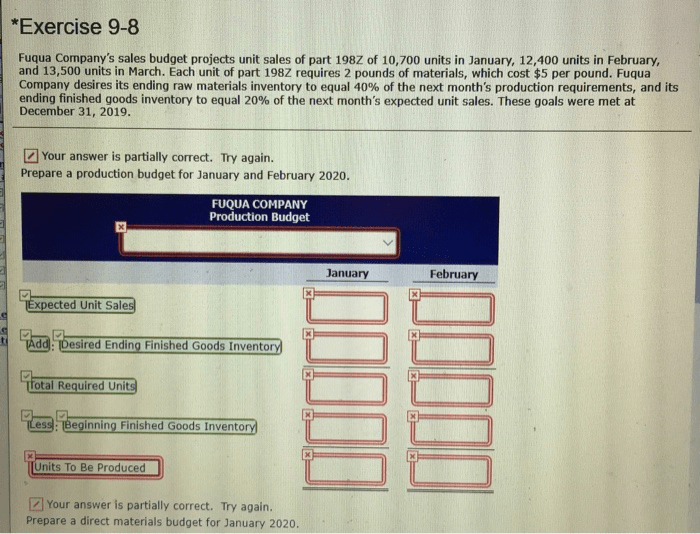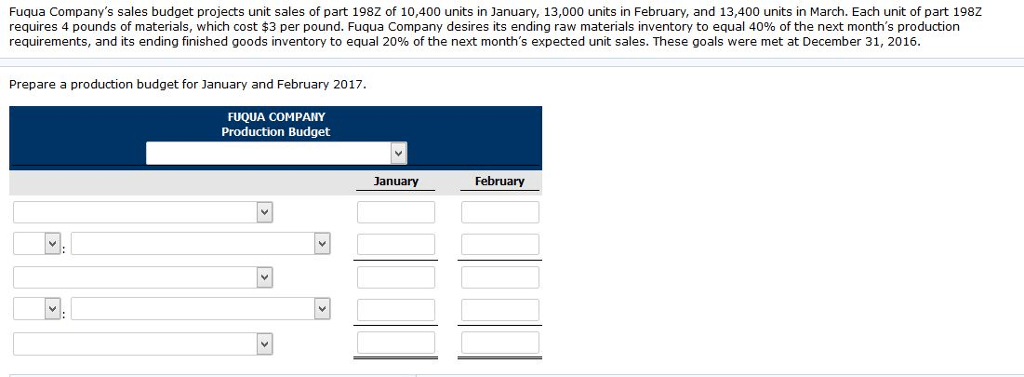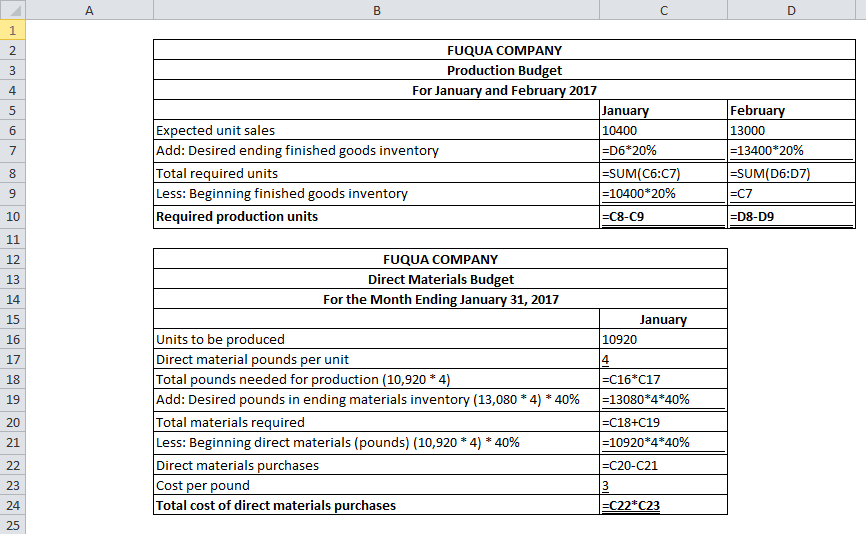Fuqua Company’s sales budget projects are a crucial aspect of the company’s financial planning and forecasting. These projects provide a roadmap for the company’s sales goals and objectives, and they are essential for ensuring that the company has the resources it needs to achieve its targets.
In this article, we will provide a comprehensive overview of Fuqua Company’s sales budget projects. We will discuss the purpose and importance of these projects, the key components of the sales budget, and the sales forecasting methods used by the company.
We will also provide an example of a sales budget template and discuss the importance of monitoring and controlling the sales budget.
Sales Budget Overview

A sales budget is a financial plan that Artikels a company’s expected sales revenue for a specific period, typically a year or a quarter. It is a crucial tool for businesses as it helps them forecast future sales, allocate resources, and make informed decisions.
Fuqua Company’s sales budget consists of several key components, including:
- Projected sales volume for each product or service
- Estimated selling prices
- Salesforce expenses
- Marketing and advertising costs
- Customer acquisition costs
Fuqua Company has historically experienced steady growth in sales, with an average annual increase of 5% over the past five years. This growth has been driven by a combination of factors, including new product introductions, expanded market penetration, and effective sales and marketing strategies.
Sales Forecasting Methods

Fuqua Company employs various sales forecasting methods to estimate future sales. These methods include:
- Historical data analysis:This method involves analyzing historical sales data to identify trends and patterns. It is a simple and straightforward method but may not be accurate in rapidly changing markets.
- Market research:This method involves conducting surveys, interviews, and focus groups to gather insights into customer needs, preferences, and buying behavior. It provides valuable information but can be time-consuming and expensive.
- Econometric models:These models use statistical techniques to analyze the relationship between economic variables and sales. They can be complex to develop but provide accurate forecasts when economic conditions are relatively stable.
Sales Budget Assumptions: Fuqua Company’s Sales Budget Projects

Fuqua Company’s sales budget is based on several assumptions, including:
- Economic conditions:The company assumes that the overall economic environment will remain stable or improve during the budget period.
- Competitive landscape:The company assumes that the competitive landscape will not change significantly, with no major new competitors entering the market.
- Customer behavior:The company assumes that customer buying patterns and preferences will remain consistent with historical trends.
These assumptions are subject to risks and uncertainties, such as economic downturns, changes in consumer behavior, and increased competition. Fuqua Company monitors these risks and takes appropriate actions to mitigate their potential impact on the sales budget.
Questions and Answers
What is the purpose of a sales budget?
A sales budget is a financial plan that Artikels a company’s sales goals and objectives for a specific period of time. It is used to allocate resources, set targets, and track progress towards those goals.
What are the key components of a sales budget?
The key components of a sales budget include the sales forecast, the sales targets, the expenses, and the profit margin.
What are the different sales forecasting methods?
There are a number of different sales forecasting methods, including historical data analysis, market research, and econometric models.
